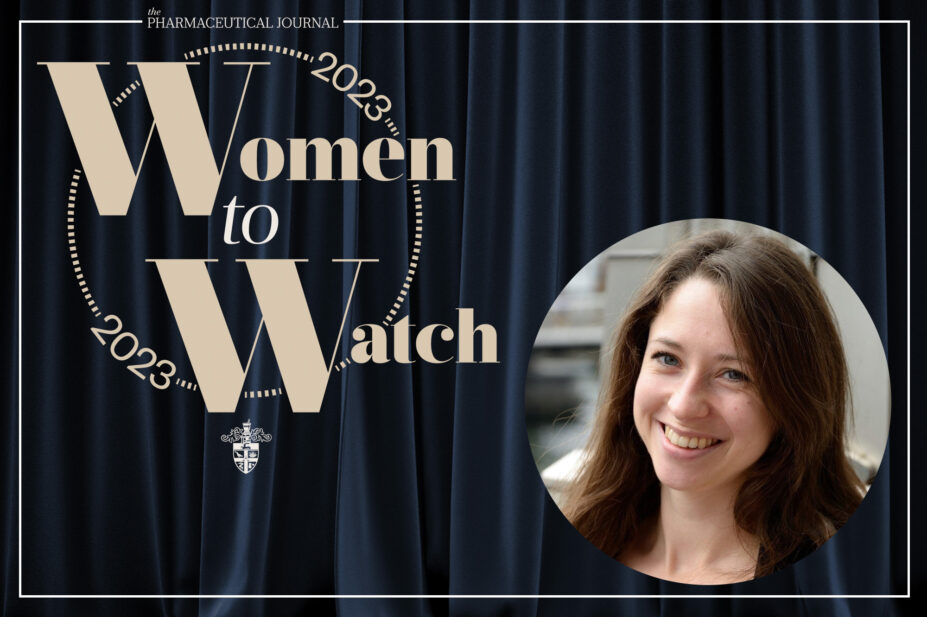
Louise Missen/The Pharmaceutical Journal
When Louise Missen first applied for a job at Gilead Sciences in 2020 to work on its programme to eliminate hepatitis C in prisons, she was a bit hesitant. Having previously worked in prisons and in pharmacy training roles, it seemed like a perfect fit. Yet she had no direct knowledge of the pharmaceutical industry.
However, after 30 minutes on the phone with her new manager, she was “blown away” by what they were managing to achieve working in prisons in partnership with the NHS. It was the patient-centredness of their approach that really attracted her attention, she adds.
“It felt like a wonderful next step,” explains Missen, who most recently became an associate director for the programme — a player-manager type role that means she has some oversight, but is also on the ground making things happen. To date, she has supported more than 80 prisons to boost hepatitis C testing and speed up treatment. The prison sector is on track for elimination in England by 2025.
In her first year, they achieved their first ‘micro-eliminated’ prison, which meant 95% of those coming into prison were tested, with 95% of the existing population also tested in the previous 12 months and 90% of those who tested positive receiving treatment. “We also had our first female prison micro-eliminated and both of those achievements were amazing.”
I’m now in this amazing position where I’ve got a bit of a budget, I’ve got time and resource and I can actually do something about it
The logistics of eliminating hepatitis C in prisons can be incredibly complex. For some prisoners, it can take two months from diagnosis to treatment. But they are now rolling out more rapid testing pathways, after successful implementation in one prison. “Since the project began, we’ve had more than 3,000 patients who started on curative treatment for hepatitis C,” she adds.
“I’ve worked in a prison, I know how hard it is to balance everything. It’s about challenging perceptions of what can and can’t be done by being able to evidence where things have been turned around.”
Early on in her career, Missen worked in a mental health trust in East London covering a forensic ward before moving to a pharmacist role at Pentonville Prison, so for Missen, organising a pilot for hepatitis C testing with Oxleas NHS Foundation Trust in Kent in a local forensic unit in 2022 has been a particular high point in her role.
“That project was a really nice way to come back to my first role and raise awareness of an underserved population. It is one of the first implementations of blood-borne virus testing in forensics that has been published and was a real high point for me.”
She has also led on a pilot to improve testing for blood borne viruses in immigration removal centres, quadrupling the number of tests carried out each month, with NHS England now planning to take that forward.
Missen is clearly not afraid of a challenge, but she says that her first job in a forensic mental health unit was a real gear change from a hospital pharmacy job, albeit one where she almost reached burnout after six months of night shift working.
“For someone from Norfolk and not very used to anything more dangerous than a deer on the road, I was terrified my first few weeks, but then you see what kind of security and support is around and you realise this is probably the safest place I could be working. You can relax and focus on the really interesting complex medical aspects of the job,” she says.
By the time Missen took the job at Gilead Sciences in London, she was also ready to make a real difference in addressing inequality in prison healthcare. “I’m now in this amazing position where I’ve got a bit of a budget, I’ve got time and resource and I can actually do something about it.”
Missen is keen to share learning on the amazing diversity of roles available in industry and has plans to do that more widely when the opportunities come up. She also lectures on her role in hepatitis C elimination on the MSc in Medical Affairs at King’s College London.
Owing to her experience of near burnout in her early pharmacy career, Missen also has a keen interest in mental health in the workplace and is a regular volunteer with the crisis text service ‘Shout’. At work, she leads the Gilead ‘Mental Health Champions’ group, providing peer support and training peer ‘mental health first aiders’, ensuring people can easily access help when they need it.
“We raise awareness of things like burnout, stress, and anxiety, what that might look like. There’s lots of things that we try and do that are quite small but might actually make a really big difference,” she says.
Missen is also aware that because the work on eliminating hepatitis C is proving so successful, she is effectively working herself out of a job. “It’s an amazing thing to be working on but there are a ton of different liver-related public health concerns to address,” she says.
“There is also work to be done on future proofing and ensuring all the good work we have put in place doesn’t just tail off.”
Panel comments
“Louise has demonstrated a real impact in blood borne virus screening in a prison setting. This can be an area of lesser focus due to its care setting. Positive feedback from partners.”
“Great examples of commitment to two areas of high need but long neglected. Whilst mental health has finally begun to have some visibility, the area of hepatitis C is one that still meets with a lot of discrimination due to the nature of transmission of the disease.”
- Meet the rest of The Pharmaceutical Journal’s Women to Watch 2023 here


